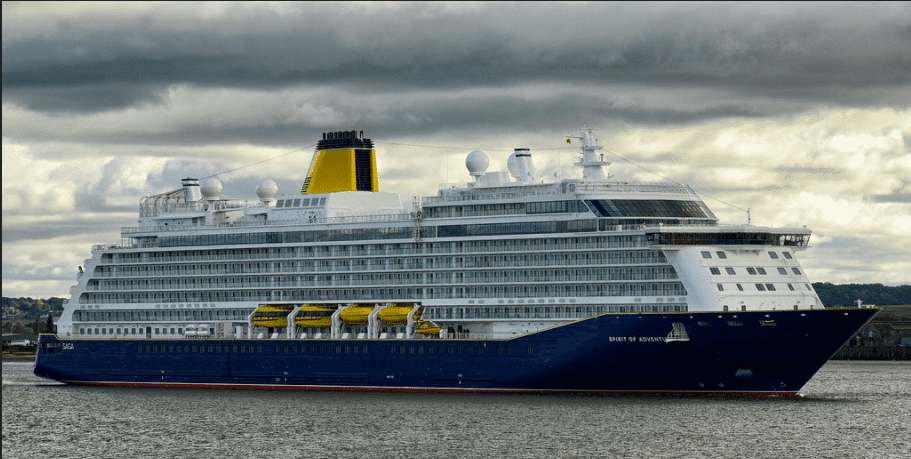
Saga shares are down 8% today at 141.38p on a day in which the stock has been consolidated – also known as a reverse split – with 15 former shares of Saga being exchanged for one.
Saga’s share price remains severely depressed amid the downturn caused by the COVID-19 pandemic, with cruise operations halted around the world and mounting levels of debt to take care of.
Meanwhile, the firm managed to raise a total of £74.8 million through an equity offering at a price of 12p per share pre-split. The offering initially intended to bring £150 million for the company but interest fell short of expectations, which points to how concerned investors are about the future of the firm given the current landscape.
Today’s drop may be partially explained by a pessimistic sentiment towards the stock following the latest events, accompanied by concerns that the fallout caused by the virus may endure for longer than expected as COVID cases continue to rise across Europe.
What Saga’s latest financial report says about the condition of the business?
Saga’s revenues dropped by nearly 51% during the first six months of 2020 compared to the same period a year ago, as the firm’s travel business has felt the pain of the restrictions imposed in Europe for its cruise line and tour operations due to the pandemic.
Meanwhile, the insurance segment has also been dealt a blow with revenues dropping 19% as a result of a reduction in the demand for travel insurance, although other sub-segments like home and motor have also slid during the first half of the year.
The travel segment, on the other hand, was decimated by the crisis, with revenues plunging as much as 77.5% during the semester, ending the period at £33 million, down from a total of £219 million the company brought in a year ago on this concept.
The results are actually cushioned by the activity the firm saw the first few months of the year – before the pandemic stroked – which means that the following six months could be even worst for Saga.
As a result of the deterioration of its fundamentals, Saga’s former owner Sir Roger de Haan has acquired a 26% stake in the firm, which gives the company a credibility boost as the founding family is now fully invested and committed to lifting Saga off the ground.
What’s next for Saga shares?

Today’s reverse stock split does not change the technical situation of Saga shares, which remain at their lowest levels since they were listed on the London Stock Exchange (LSE).
The firm’s outlook for what remains of 2020, and for the first half of 2021 for that matter, remains gloomy, as cruise lines are unlikely to fully resume their operations in short notice as stated by the firm itself.
In this regard, Saga’s management stated: “While the future impact of COVID-19 remains highly uncertain, there is an increased risk of disruption of the Cruise and Tour Operations businesses well into 2021”.
Given the importance of the travel segment for the firm – which accounted for roughly half of its revenues last year – Saga will have to undertake a major restructuring over the course of the next few months to save money to survive the downturn.
The firm’s latest equity raise, which failed to attract enough interest from investors, is perhaps a sign of the times for Saga and could mean that the company has now fewer options to keep its head above water in terms of its liquidity position.
In this regard, the firm said: “While the Group has significant available liquidity and is expected to remain in compliance with all banking covenants through at least the next six months in all reasonable scenarios and before any additional actions are taken to improve financial flexibility, such an outcome would have a potentially significant adverse impact on the position beyond this date”.
While adding: “Specifically, there is a risk that the Group would not comply with all of its financial covenants as at 31 July 2021 in the absence of such further actions being taken”.
Given the prolonged disruption that the COVID-19 pandemic has supposed for the leisure industry, the virus continues to be the most important variable to keep an eye on to determine the faith of Saga over the course of the next 12 months.

Question & Answers (0)